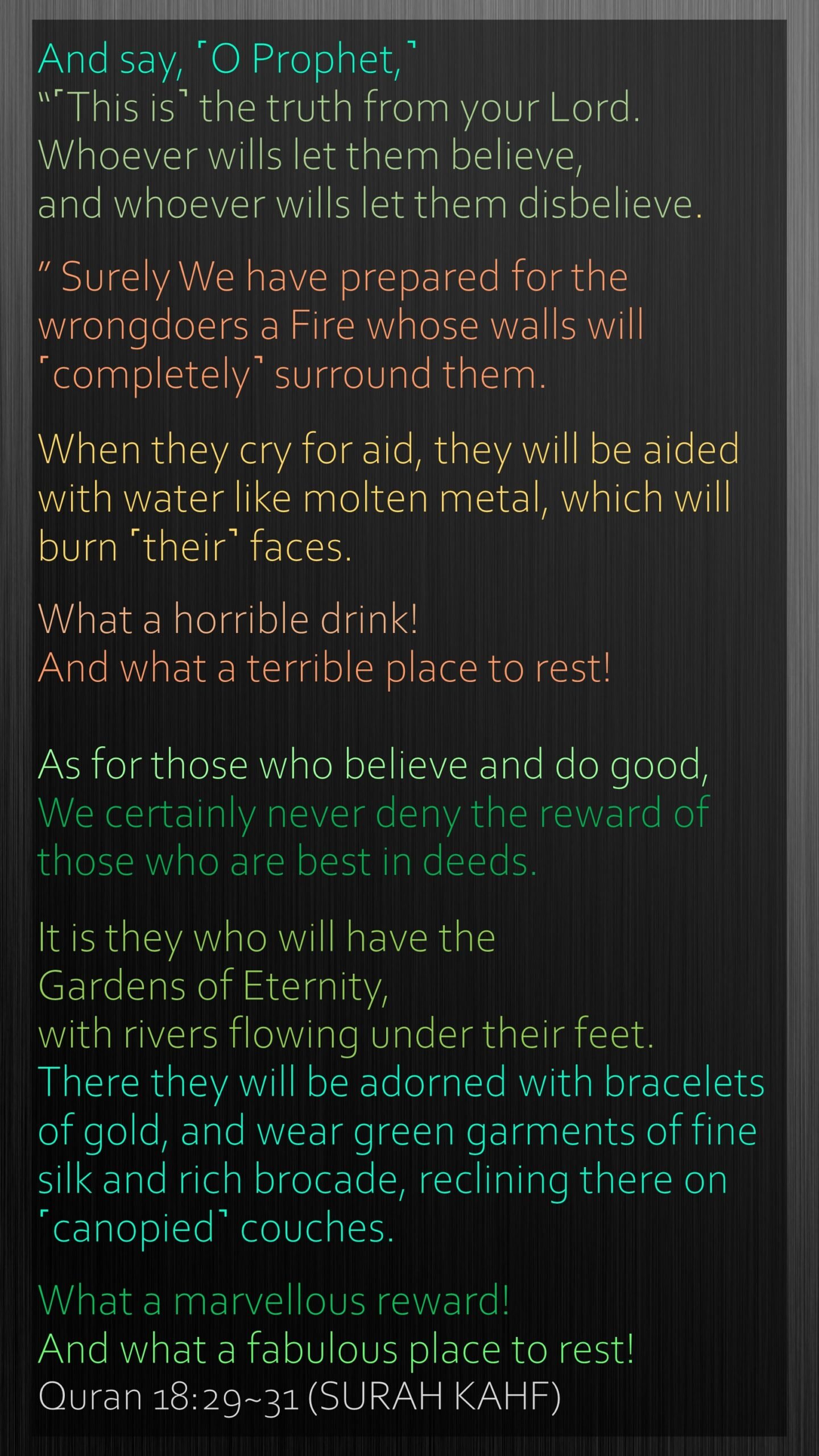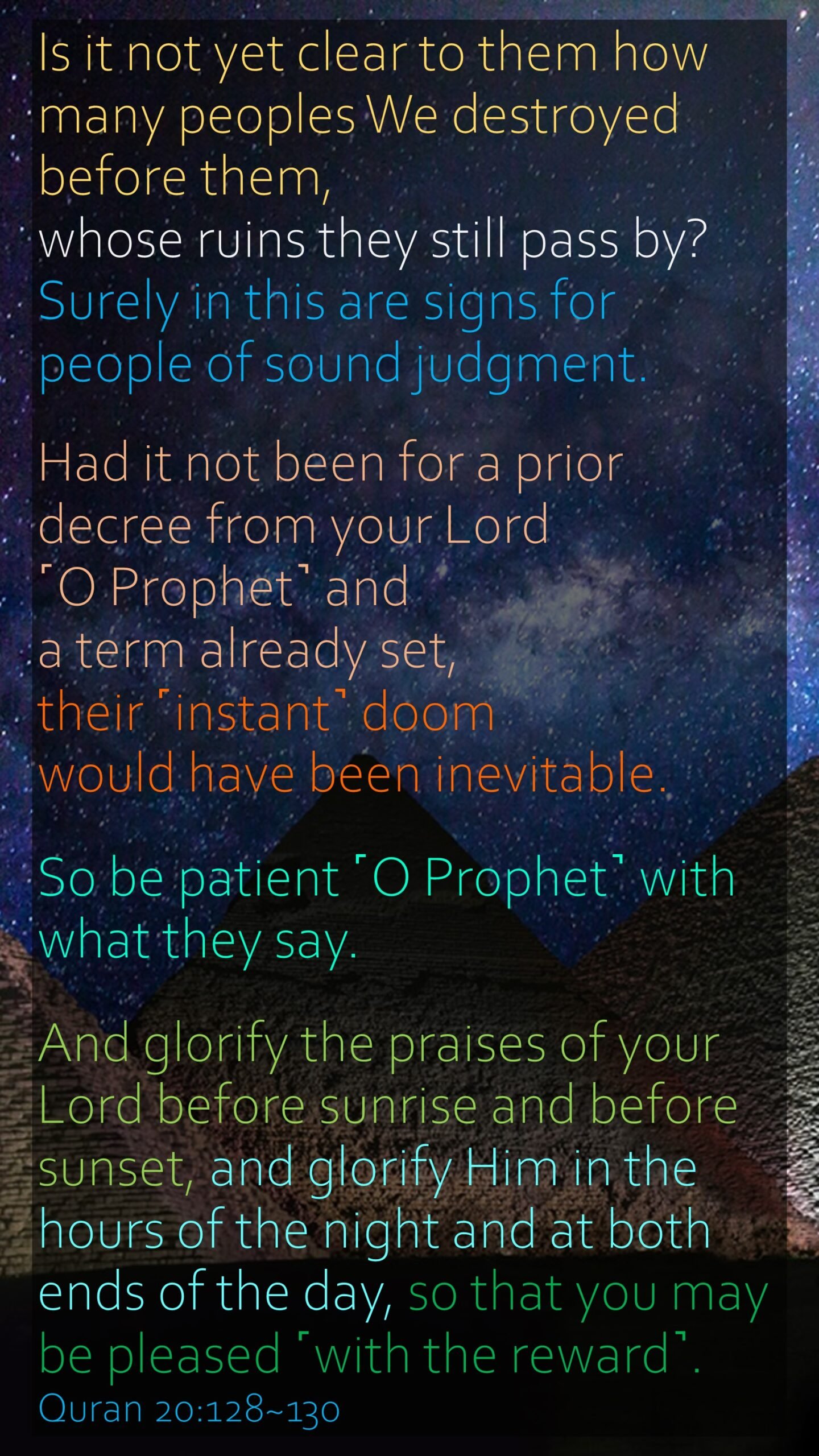Skip to Content
Tag Archives: reward
- Home -
- Posts tagged "reward"
( Page7 )
18
Sep, 2023
Islam, Quran
Allah, ayat, daily, Eternity, fire, garden, good, hell, inspirations, islam, islamic, quran, reward, Surah
12
Sep, 2023
Islam, Quran
Allah, ayat, Cave, crooked, daily, dajjal, forever, Glorious, good, good-doers, inspirations, islam, islamic, Kahf, Muhammad, Muhammad PBUH, Muhammad SAWW, news, praise, Prophet Muhammad, quran, reveal, reward, Severe, Surah, torment, upright
5
Sep, 2023
Islam, Quran
Allah, ayat, daily, day, decree, destroy, doom, evening, Glorify, inevitable, inspirations, instant, islam, islamic, judgement, morning, Muhammad, night, patient, PBUH, pleased, praise, Prophet, quran, reward, SAWW, Sign, Surah
4
Sep, 2023
Islam, Quran
Allah, ayat, blind, cry, daily, inspirations, islam, islamic, judgement, Life, miserable, Punishment, quran, reminder, revelations, reward, sight, Surah, transgress
6
Jul, 2023
Islam, Quran
absolve, All-Hearing, All-Knowing, Allah, appoint, ayat, cause, creation, daily, good, inspirations, islam, islamic, meeting, need, no need, quran, reward, sin, strive, Surah, time
5
Jul, 2023
Islam, Quran
Allah, avoid, ayat, better, corruption, daily, deed, eternal, evil, evildoer, good, home, inspirations, islam, islamic, paradise, punish, quran, reward, righteous, Surah, tyranny
4
Jul, 2023
Islam, Quran
Allah, ayat, burden, corruption, daily, desire, destroy, earth, fortune, generation, gift, glamour, good, help, hereafter, Himself, inspirations, islam, islamic, keys, knowledge, Korah, Life, Men, Moses, people, prideful, Qaroon, Qarun, quran, reward, share, spread, steadfast, strong, superior, Surah, swallow, treasure, wicked, World
30
Apr, 2023
Islam, Quran
Allah, an-Naml, ayat, better, Chapter 27, daily, deed, evil, face, fire, First, good, horror, hurled, inspirations, islam, islamic, quran, reward, secure, Surah, Verse 89, verse90
19
Apr, 2023
Hadees, Islam
Allah, belief, daily, Faith, forgiven, inspirations, islam, islamic, layl-tul-Qadr, night, Night of Decree, prayer, Qadr, Ramadan, Ramzan, reward, sins, stand, superiority
18
Apr, 2023
Hadees, Islam
Allah, bukhari, daily, delights, ears, eves, excellent, heart, inspirations, islam, islamic, Muhammad, Oneness, PBUH, Prophet, reward, righteous, SAWW, slaves, Soul, Tawheed, think, Uniqueness









